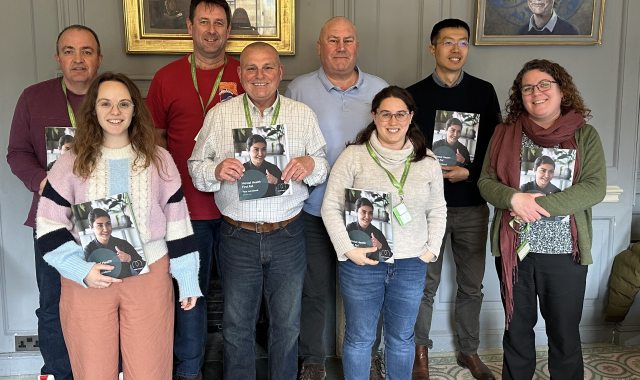Aims and objectives
The College is an institution of Higher Education. Its primary charitable purpose is the pursuit of education, religion, learning and research, and its overall objective is to rank amongst the highest achieving academic institutions in the world.
Public Benefit
The College provides, in conjunction with the University of Cambridge, an education for more than 700 undergraduate and graduate students that is recognised internationally as being of the highest standard. This education develops students academically and advances their leadership qualities and interpersonal skills, and so prepares them to play full and effective roles in society. In particular, the College provides:
- teaching facilities and individual or small-group supervision, as well as pastoral , administrat ive and academic support through its tutorial systems
- social, cultural, musical, recreational and sporting facilities to enable each of its students to realise as much as possible of their academic and personal potential while studying at the College
- specialist choral musical education for its choristers who make up the College's renowned choir
The College advances learning and research through:
- providing an intellectual and social base for around 170 graduate students, as well as offering studentships, bursaries, financial support and grants for travel and other support relating to their research
- providing Research Fellowships to outstanding academics at the early stages of their careers, which enables them to develop and focus on their research in this formative period before they undertake the full teaching and administrative duties of an academic post
- supporting research work pursued by its Fellows through promoting interaction across discipli nes, providing facilities and providing grants for national and international conferences, research trips and materials
- encouraging visits from outstanding academics from abroad
- encouraging the dissemination of research undertaken by members of the College through the publication of papers in academic journals or other suitable means
The College maintains an extensive library (including important special collections), providing a valuable resource for students and Fellows of the College; members of other Colleges and the University of Cambridge more widely; and external scholars and researchers. It also offers a venue for occasional lectures and exhibitions open to the general public.
The College carries forward the requirement, continuous since its foundation, of being a place of spiritual and ethical reflection on the Christian faith and its implications for the individual and society. In particular, the College:
- maintains and supports the Chapel as a place of religious worship where visitors are welcome during the day; where a variety of religious services take place on weekdays and at weekends during term, details of which are advertised on noticeboards and the website; and where all regular services in the College Chapel are open to the public and are attended by students and staff from elsewhere in the University as well as local residents and visitors to Cambridge
- maintains its outstanding choral tradition, which is integral to the provision of Divine Service in its Chapel, through the College's choir, formed from the students of the College
- supports, through the College Dean, the emotional, mental and spiritual well-being of all members of the College community whatever their faith tradition, or none
- maintains its historic connection with the work of the Church of England, particularly through its involvement as Patron of 22 parishes (and, in the absence of a Rector of Stockport, as Patron of a further six parishes) and Lay Rector of four parishes
- supports the institution of Caius House Battersea through the appointment of its Trustees (in the gift of the Master) and the involvement of the Dean as a Trustee
The College admits as students those who have the highest potential for benefiting from the education provided by the College and the University and recruits as academic staff those who are able to contribute most to the academic excellence of the College, regardless of their financial, social, religious or ethnic background:
- there are no geographical restrictions in the College's objects and students and academic staff of the College are drawn from across the UK and internationally
- there are no age restrictions in the College's objects but students of the College are predominantly between 18 and 24 years old
- there are no religious restrictions in the College's objects and members of the College have a wide variety of faith traditions or none
The focus of the College is strongly academic and students need to satisfy high academic entry requirements. The College works to ensure that no one is barred from attending the College because of financial constraints and provides assistance to many of its students:
- to assist undergraduates entitled to student support, the College provides, together with the University, other Colleges, and the Cambridge Bursary Scheme, support for those of limited financial means. That scheme is approved by the Office of Fair Access and provides benefits at a substantially higher level than the minimum Office for Fair Access (OFFA) requirement.
- to support the costs of graduate students, the College provides substantial financial support. This includes scholarships to fund fees and living costs and 'top-up' funding to fill funding shortfalls in students' funding packages.
The College also supports students through a grant scheme to assist with the purchase of books and equipment, attendance at conferences, childcare support and travel grants, as appropriate. In addition to its other programmes, the College has limited funds for any student in financial hardship.
To raise educational aspiration and attract outstanding applicants who might not otherwise have considered applying to Gonville & Caius, the College operates an extensive outreach programme, including visits to schools, visits by schools to the College, open days, a summer school, admissions symposia for teachers as well as guidance and information on the College website for prospective applicants.

